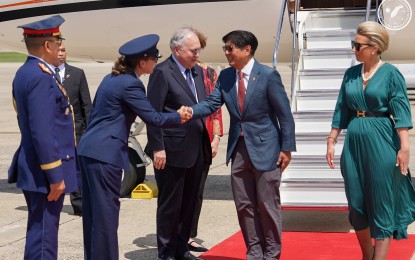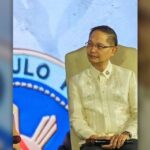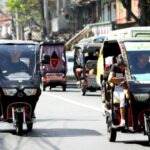MANILA – President Ferdinand R. Marcos Jr.’s official visit to the United States is both a strategic diplomatic engagement and a deeply practical mission for the welfare of every Filipino.
“We fully support the President’s mission. Amid the economic and security challenges, a strong and fair relationship with our allies is very important. The goal of our President is clear – to ensure that there will be employment, food, and peace for every Filipino family,” a statement said.
The visit comes at a critical moment, with new US tariffs on key Philippine exports set to take effect on Aug. 1, threatening jobs and industries at home.
“If the President can secure even a pathway toward tariff relief or a fairer trade deal, we in Congress are ready to do our part. We will file measures that will help farmers, workers, and businesses uplift the country’s livelihood,” the statement added.
The President’s effort to attract more investments to the Philippines, particularly in energy, manufacturing, and digital infrastructure, was also highlighted. These sectors are expected to create thousands of jobs and help lift more Filipinos out of poverty.
It was stressed that economic diplomacy must be matched by robust defense cooperation with long-time allies, especially as tensions continue in the West Philippine Sea.
“Our national defense is not just a geopolitical issue—it’s about protecting our fishermen, securing our food supply, and asserting the dignity of every Filipino family who depends on the sea,” the statement noted.
Reports that President Marcos is pursuing a bilateral trade arrangement with the US were welcomed, with emphasis on fairness and mutual respect.
“This is where visionary leadership matters. This is not about politics, but about the future. We need a seat at the table—not as a junior partner, but as a trusted and equal ally.”
Joint Base Andrews
Joint Base Andrews, located in Maryland, is a key U.S. military installation that serves as the home of Air Force One and supports presidential and VIP air transport. Established in 1942 as Andrews Field, it was named after Lieutenant General Frank M. Andrews, a pioneer in military aviation. Today, it operates as a joint base under the Air Force and Navy, hosting the 316th Wing and playing a vital role in national defense and emergency response.
Washington D.C.
Washington, D.C., the capital of the United States, was founded in 1790 as a planned city to serve as the nation’s political center. Named after George Washington and designed by Pierre Charles L’Enfant, it is home to iconic landmarks like the White House, Capitol Building, and National Mall, reflecting its deep historical and governmental significance. The city also hosts numerous museums, memorials, and cultural institutions, symbolizing American heritage and democracy.
United States
The United States, founded in 1776 after declaring independence from Britain, is a diverse nation shaped by Native American heritage, European colonization, and waves of immigration. Known for its democratic government, economic power, and cultural influence, it features iconic landmarks like the Statue of Liberty, the Grand Canyon, and the White House. Its history includes pivotal events such as the Civil War, the Civil Rights Movement, and its role as a global superpower in the 20th and 21st centuries.
Philippines
The Philippines is an archipelagic country in Southeast Asia, known for its rich cultural heritage and diverse history. It was colonized by Spain for over 300 years, followed by American and Japanese rule, before gaining independence in 1946. Today, it is famous for its vibrant festivals, stunning beaches, and a unique blend of indigenous and colonial influences in its traditions, cuisine, and architecture.
West Philippine Sea
The West Philippine Sea refers to the eastern part of the South China Sea that lies within the Philippines’ exclusive economic zone (EEZ), as defined by international law, including the 2016 ruling by the Permanent Court of Arbitration. Rich in marine biodiversity and natural resources, it has been a focal point of territorial disputes, particularly with China, which claims much of the region despite the ruling. The Philippines asserts its sovereign rights over the area, emphasizing its importance for fishing, energy exploration, and national security.
MANILA
Manila, the capital of the Philippines, is a vibrant metropolis with a rich colonial history. Founded in 1571 by Spanish conquistadors, it became a key trading hub in Asia and features historic landmarks like Intramuros, the old walled city. Today, Manila blends Spanish, American, and indigenous influences, offering bustling markets, modern skyscrapers, and cultural heritage sites.






